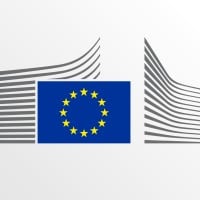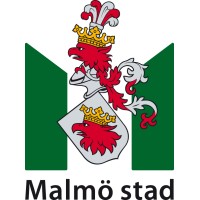Company Cyber Security Posture
NANA
NA Company Details
NA
NA
NA
NA
NA
NA
Scan still pending
NA
NA
Between 200 and 800
This score is AI-generated and less favored by cyber insurers, who prefer the TPRM score.
 NA Global Score
NA Global Score.png)

Company Scoring based on AI Models
| Model Name | Date | Description | Current Score Difference | Score |
|---|---|---|---|---|
| AVERAGE-Industry | 03-12-2025 | This score represents the average cybersecurity rating of companies already scanned within the same industry. It provides a benchmark to compare an individual company's security posture against its industry peers. | N/A | Between 200 and 800 |
Company Cyber Security News & History
| Entity | Type | Severity | Impact | Seen | Url ID | Details | View |
|---|
Company Subsidiaries

NA
Access Data Using Our API

Get company history
.png)
NA Cyber Security News
HUMBL Acquires Latin America Technology Firm Ixaya
(OTCQB:HMBL) announced today the acquisition of Ixaya Business SA de CV, a Mexico-based firm with over fifteen (15) years of experience in ...

NA Similar Companies

East Riding of Yorkshire Council
East Riding of Yorkshire Council is a unitary authority which means that all local council services are provided by the same council. This is different to other parts of the country where responsibility is shared between a county council and a local district or borough council. The East Riding is

Helsingin kaupunki – Helsingfors stad – City of Helsinki
Helsingin kaupunki on Suomen suurin työnantaja, jonka palveluksessa on lähes 38 000 ammattilaista ja asiantuntijaa. Helsingin kaupunki tarjoaa henkilöstölle monipuolisia, mielenkiintoisia ja yhteiskunnallisesti merkittäviä työtehtäviä, hyvät mahdollisuudet kehittymiseen, ammattitaitoiset työkaveri

Warwickshire County Council
County level local government authority. The County Council Warwickshire County Council provides a wide range of services to over half a million residents. It works with other public, private and voluntary bodies to make Warwickshire a better place for people to live and work. It has specifi

European Commission
The Commission represents and upholds the interests of the EU as a whole, and is independent of national governments. The European Commission prepares legislation for adoption by the Council (representing the member countries) and the Parliament (representing the citizens). It administers the budge

Malmö stad
Bli en samhällsbyggare – jobba i Malmö stad! Genom att arbeta i Malmö stad får du möjlighet att arbeta med hållbar samhällsutveckling. Som en samhällsbyggare spelar du en viktig roll i Malmös utveckling och därför ser vi oss som framtidens arbetsplats. Människors lika värde är en förutsättning fö

Ministry of Environment and Urbanism
MINISTRY of ENVIRONMENT and URBANISM (MEU) MAIN SERVICE UNITS ================== 1) General Directorate of Construction Works 2) General Directorate of Spatial Planning 3) General Directorate of Environmental Management 4) General Directorate of EIA, Permits and Control 5) General Directo

Frequently Asked Questions
Explore insights on cybersecurity incidents, risk posture, and Rankiteo's assessments.
NA CyberSecurity History Information
How many cyber incidents has NA faced?
Total Incidents: According to Rankiteo, NA has faced 0 incidents in the past.
What types of cybersecurity incidents have occurred at NA?
Incident Types: The types of cybersecurity incidents that have occurred include .
Additional Questions
What Do We Measure?
















Every week, Rankiteo analyzes billions of signals to give organizations a sharper, faster view of emerging risks. With deeper, more actionable intelligence at their fingertips, security teams can outpace threat actors, respond instantly to Zero-Day attacks, and dramatically shrink their risk exposure window.
These are some of the factors we use to calculate the overall score:
Identify exposed access points, detect misconfigured SSL certificates, and uncover vulnerabilities across the network infrastructure.
Gain visibility into the software components used within an organization to detect vulnerabilities, manage risk, and ensure supply chain security.
Monitor and manage all IT assets and their configurations to ensure accurate, real-time visibility across the company's technology environment.
Leverage real-time insights on active threats, malware campaigns, and emerging vulnerabilities to proactively defend against evolving cyberattacks.




